There’s so much health and fitness information available on the internet these days, which is wonderful but also overwhelming. With so much conflicting advice out there, it can be hard to know what to believe. I’ve broken down five of the most common health and fitness myths so that you can stop following the wrong advice and get back on track with your fitness journey.
Disclaimer: this post contains some affiliate links. When you make purchases through my links, I may earn a commission at no extra cost to you. Thank you for your support!
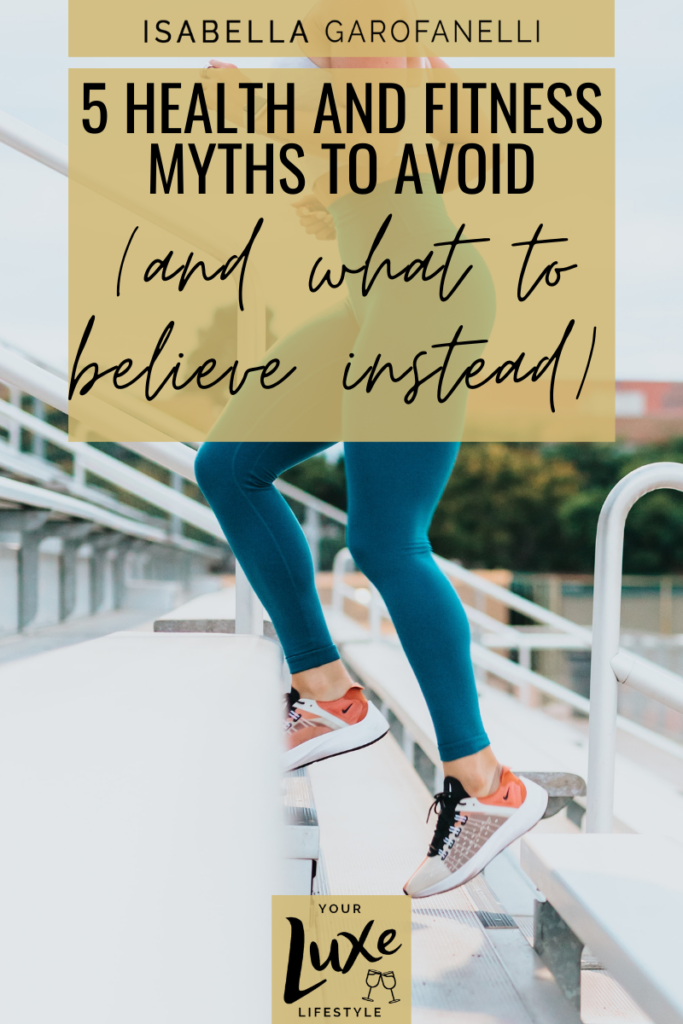

1. Lifting Weights Will Make You Look Manly
SO many women are afraid of lifting weights because they don’t want to get too big. However, there are several reasons why this isn’t true. In fact, it’s my least favorite of all of the health and myths out there.
For one thing, gaining muscle is a very slow process for anyone. Changes are slow and subtle; there’s absolutely no way that you will suddenly wake up looking like a bodybuilder one day!
Whilst we’re on that subject, remember that bodybuilders train for hours a day for years on end to look the way that they do. Their whole lives are centred around gaining muscle and maintaining their physique. It doesn’t happen by accident.
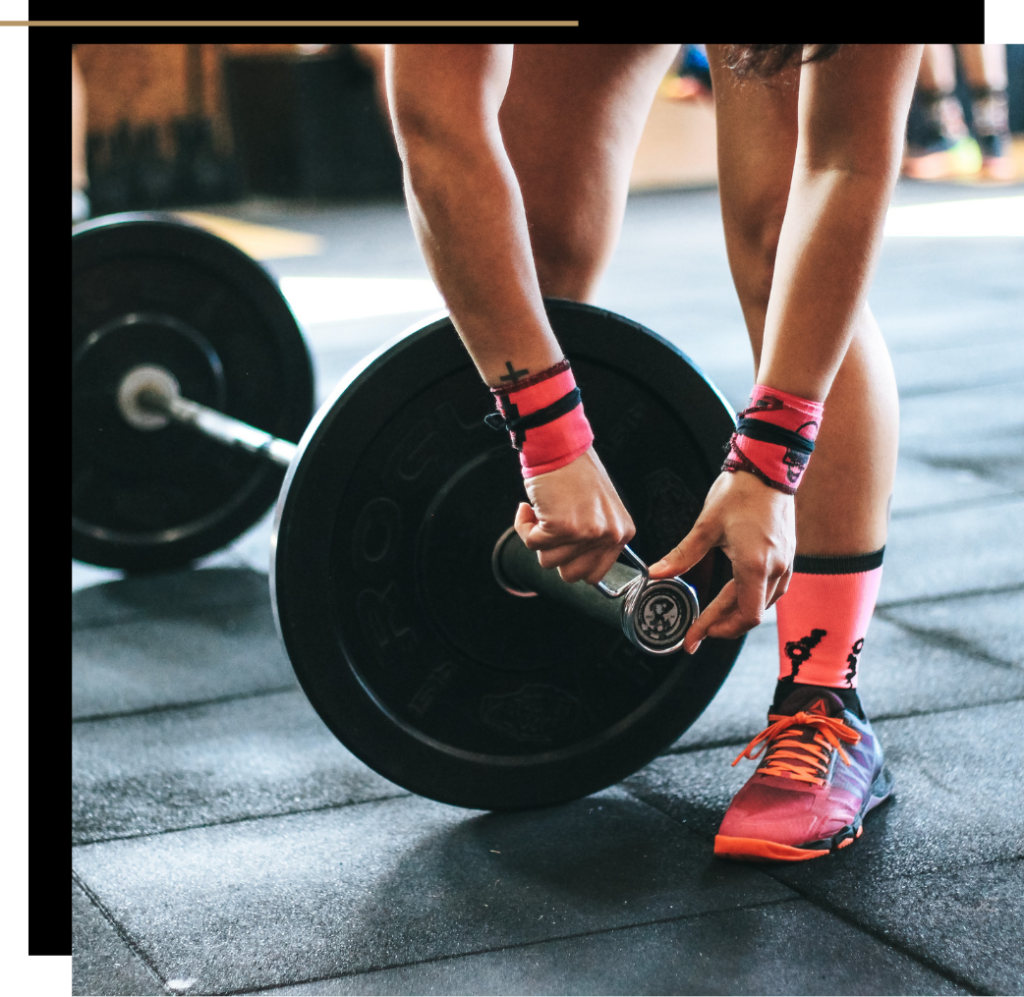
Women also have a lower percentage of muscle than men. The average 18-35 year-old woman has a muscle mass percentage of 31-33%, whilst a man in the same age group would be expected to have a percentage of 40-44%. This is partly down to our hormones – testosterone allows men to build muscle much faster than we women can.
Let’s also remember that there are many gorgeous and muscular women out there who don’t look manly in the slightest!
In short, looking weights won’t make you look manly. Even if you set out with the intention of becoming Arnold Schwarzenegger, you’d have to dedicate years and years of your life to come close. (And let’s be real, his physique isn’t achievable for the majority of men out there anyway!)
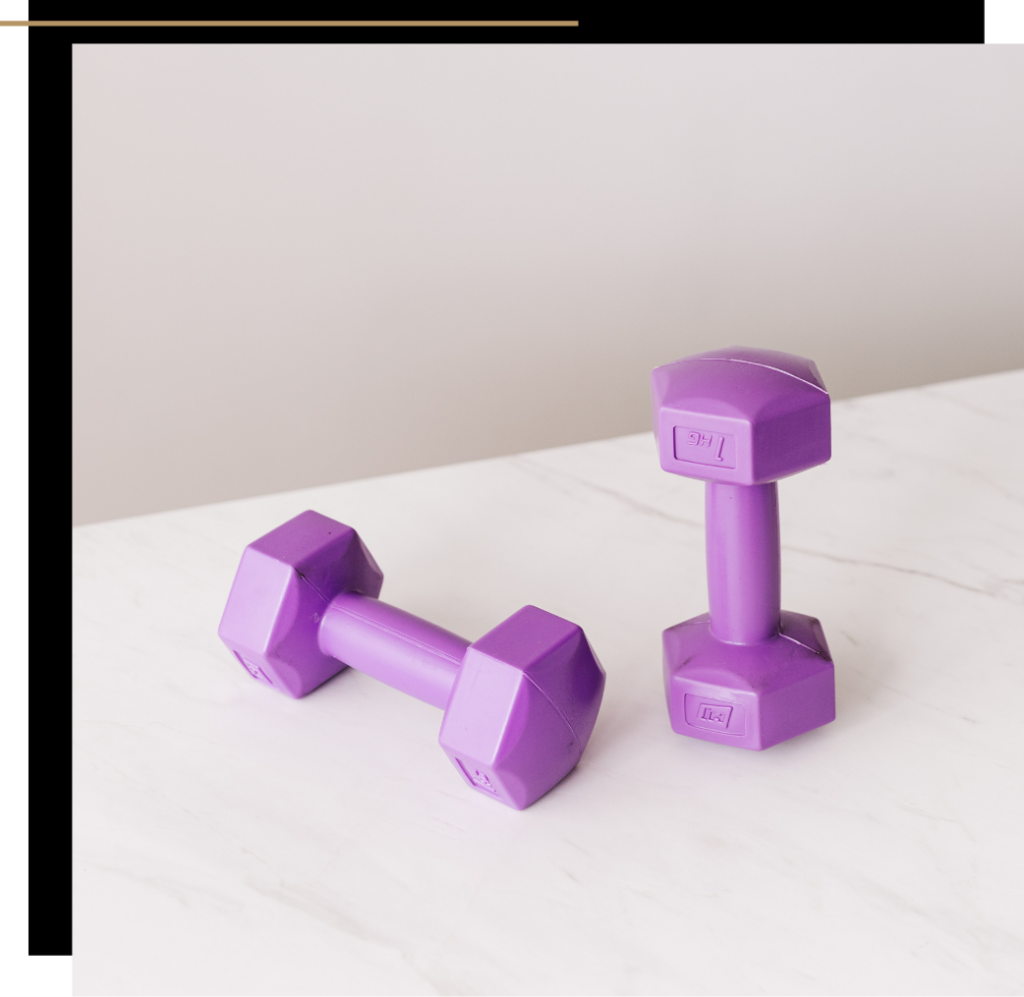
So What’s the Truth?
If you want to achieve that “toned” look, lifting weights will help you do it. Toning means reducing body fat and increasing muscle mass, so subtle changes to your body composition can help you get the fit, feminine physique that you desire. Don’t let these health and fitness myths get in the way.
Cardio burns a lot of calories and so it can help you to reduce fat, in combination with a healthy diet. However, it doesn’t do much to build your muscles.
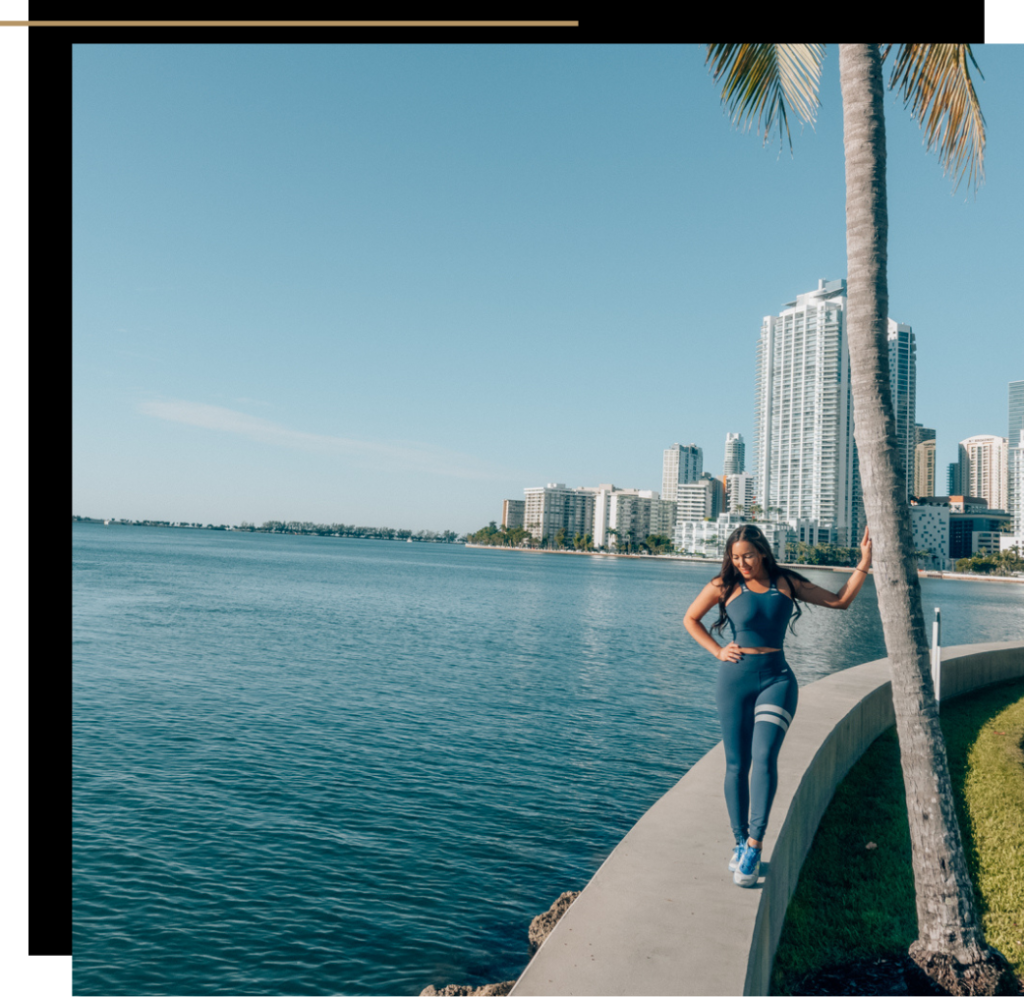
Meanwhile, strength training tends to burn fewer calories during your workout but it will help you to gain muscle. It’s also worth noting that studies have shown that strength training increases how many calories you burn after a workout for up to 38 hours.
Furthermore, building muscle increases your base metabolic rate, aka how many calories you burn just by being alive. This is because muscle tissue uses more energy than fat tissue. One study found that women who lifted weights for 24 weeks saw their base metabolism increase by 4% – nothing super dramatic but enough to make a difference over time.
The bottom line is that weight lifting will most likely help you slim down, so long as you’re not overeating. Strength training alone can help you to lose weight and gain muscle, although I do recommend incorporating cardio too for its amazing mood-elevating and heart health benefits.
I recommend checking out some adjustable dumbbells or barbells so you can continue upping your weights and making progress.


2. Eating Late = Gaining Weight
You may remember my article on intermittent fasting. Whilst following an eating pattern can help with weight management, eating late at night does not make you put on weight! An apple doesn’t turn into a block of lard past 8pm.
Intermittent fasting helps with weight loss because it encourages you to eat in a calorie deficit by giving you a smaller window in which to consume those calories. However, if you eat 10,000 calories in three hours, you’re still going to gain!
A lot of health and fitness myths arise out of a lack of understanding. The reason many people think late night eating causes weight gain is because of the types of food we tend to consume late at night. When you’re snuggled up watching a movie, you’re much more likely to reach for popcorn and cookies than carrot sticks. Or when you grab some food after a night out with friends, I’d wager that you opt for pizza over a kale salad.
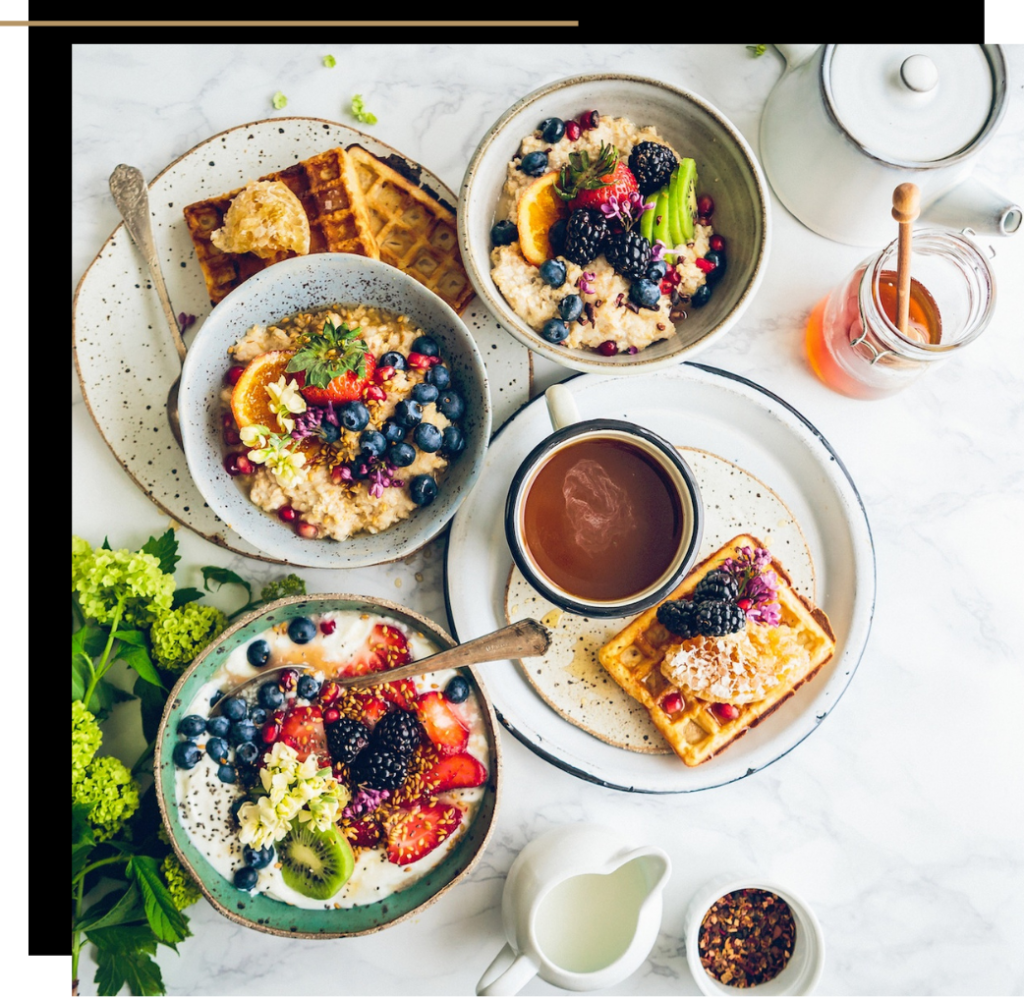
So What’s the Truth?
There’s nothing wrong with eating late at night, but if you deprive yourself all day and then raid the fridge in the evening, it’s worth taking a look at your unbalanced eating habits.
The truth is that there’s never a bad time to eat and if you fancy a late night snack, go for it. The only way to gain weight is to consume more calories than you burn. It’s about what you eat, not when.
If an eating pattern like intermittent fasting works for you and makes you feel good, then go for it! But if, like me, you’re prone to a late-night bowl of cereal, keep on enjoying it without an ounce of guilt.
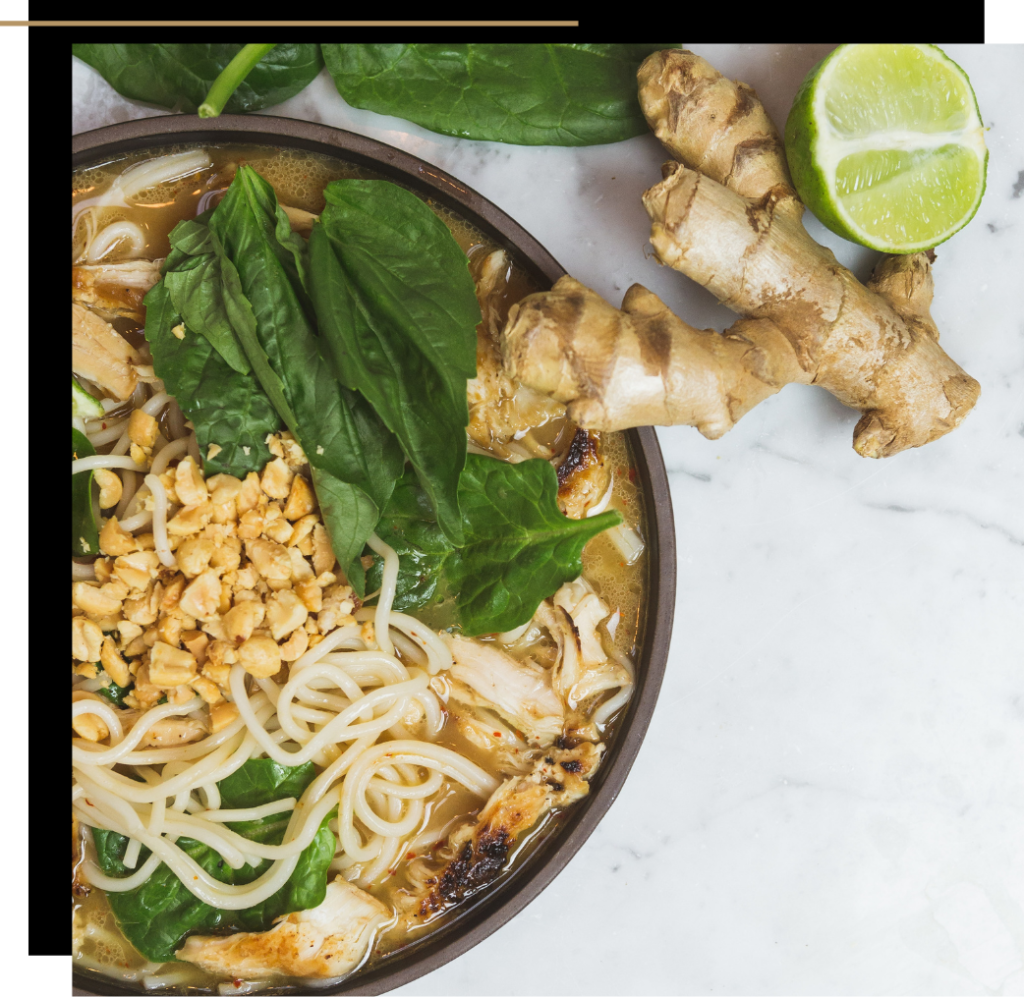

3. You Have to Make Up for a Missed Workout
Even the most dedicated fitness fanatics miss a workout sometimes and guess what? That’s okay! Life is about more than hitting the gym, and sometimes other matters take priority. Or sometimes you just don’t feel up to – and that’s fine, too.
If you beat yourself up about missing a workout, you won’t feel motivated to do your next one, either. You’ll get into a vicious cycle of shaming yourself.
Besides, telling yourself you now have to do two workouts tomorrow will just feel overwhelming and you’re less likely to exercise at all.
So What’s the Truth?
Nothing will happen if you miss the odd workout – that’s just life. Simply shrug your shoulders, hold your head up and carry on as if nothing happened. You won’t lose all your fitness progress over night, so don’t sweat it.

4. You Should Always Feel Sore After a Workout
Okay, I have to admit: I do kind of love delayed onset muscle soreness (DOMS) in a weird kind of way. I always feel like it means I worked hard!
However, just because you’re not sore the day after a workout doesn’t mean it was a waste of time. Soreness is the result of small tears in your muscles. If you haven’t worked out in a while or are trying a new style of training, you’ll experience more of these tears because your muscles won’t be used to being worked so hard.
So What’s the Truth?
You probably won’t be sore after every workout, but that doesn’t mean you won’t see progress – it just means your muscles are getting stronger! Don’t let health and fitness myths discourage you.
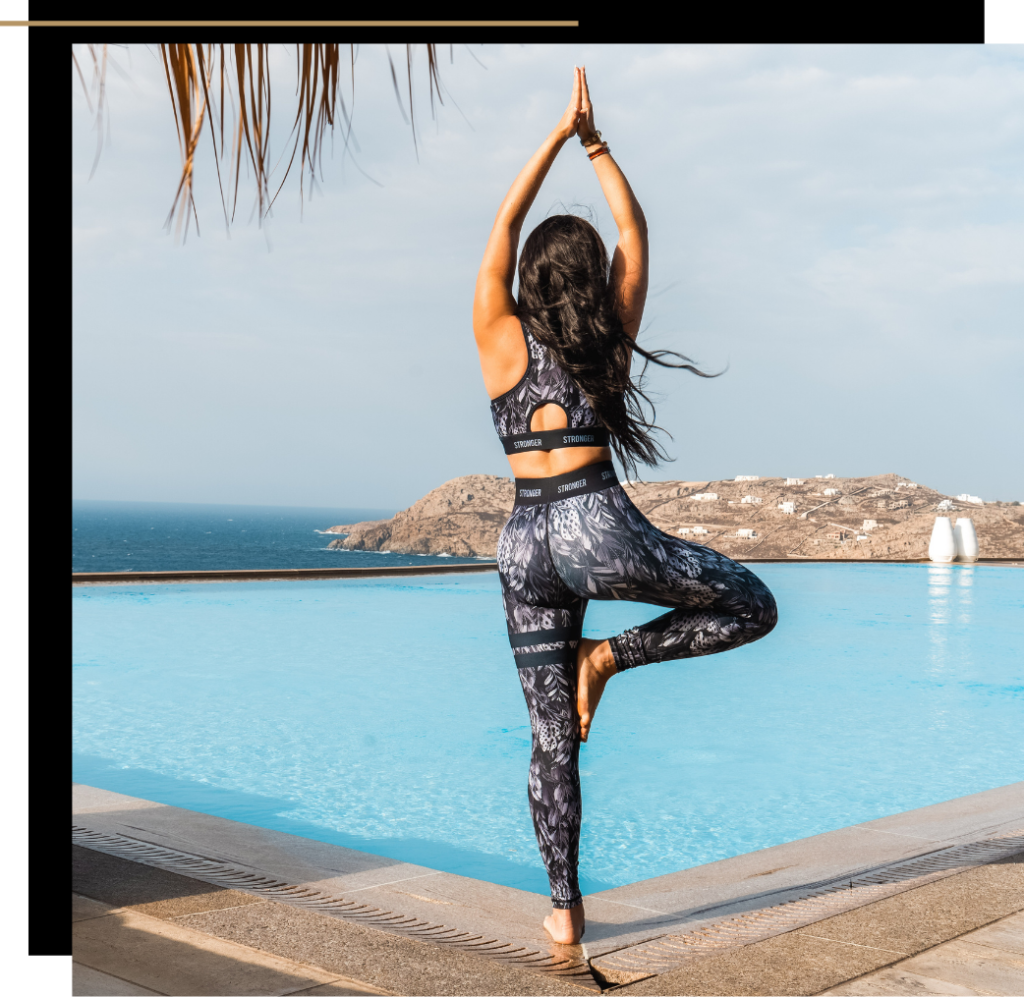

5. You Need Protein Powder
Now, don’t get me wrong. Protein powder is great but you don’t need it.
Whilst protein aids recovery and helps you to build muscle, it comes in many forms. If you want to up your protein intake, the best thing to do is simply try to incorporate more high protein foods in your diet, such as chicken breast, eggs or tofu.
So What’s the Truth?
You can improve your strength and fitness without an ounce of protein powder. It simply allows you to be more versatile and add protein to a greater variety of foods, for those days when you fancy a smoothie instead of an omelette.
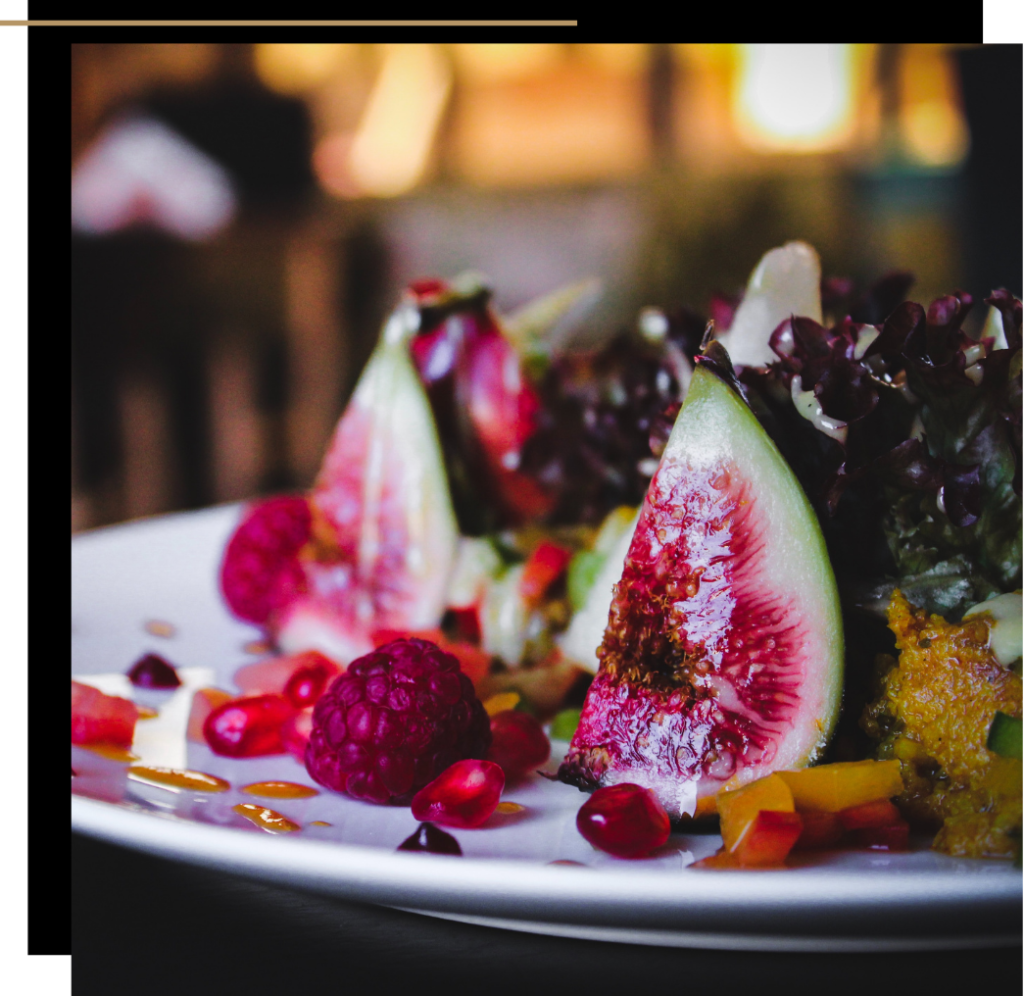

For more on health and fitness, be sure to take a look at:
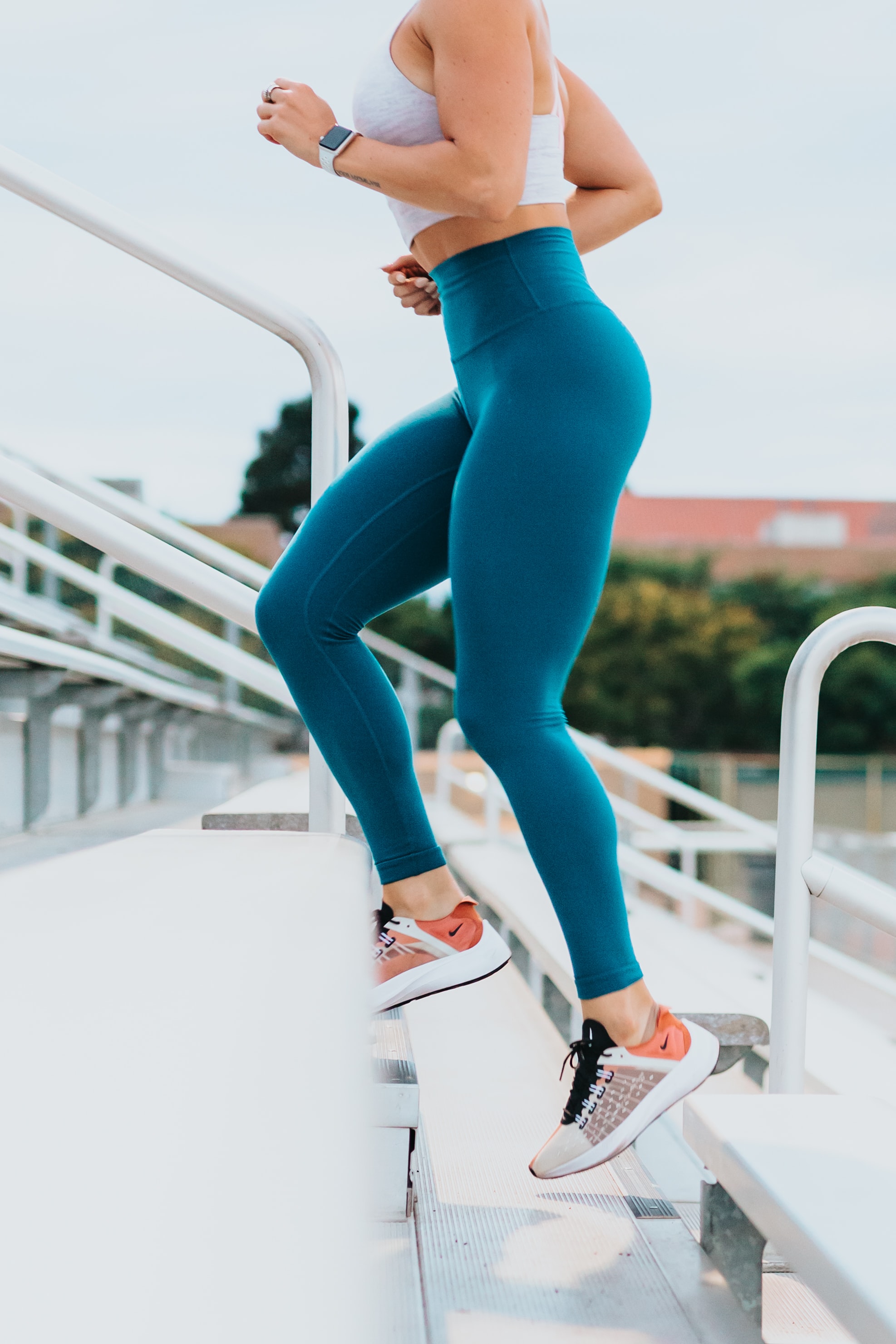
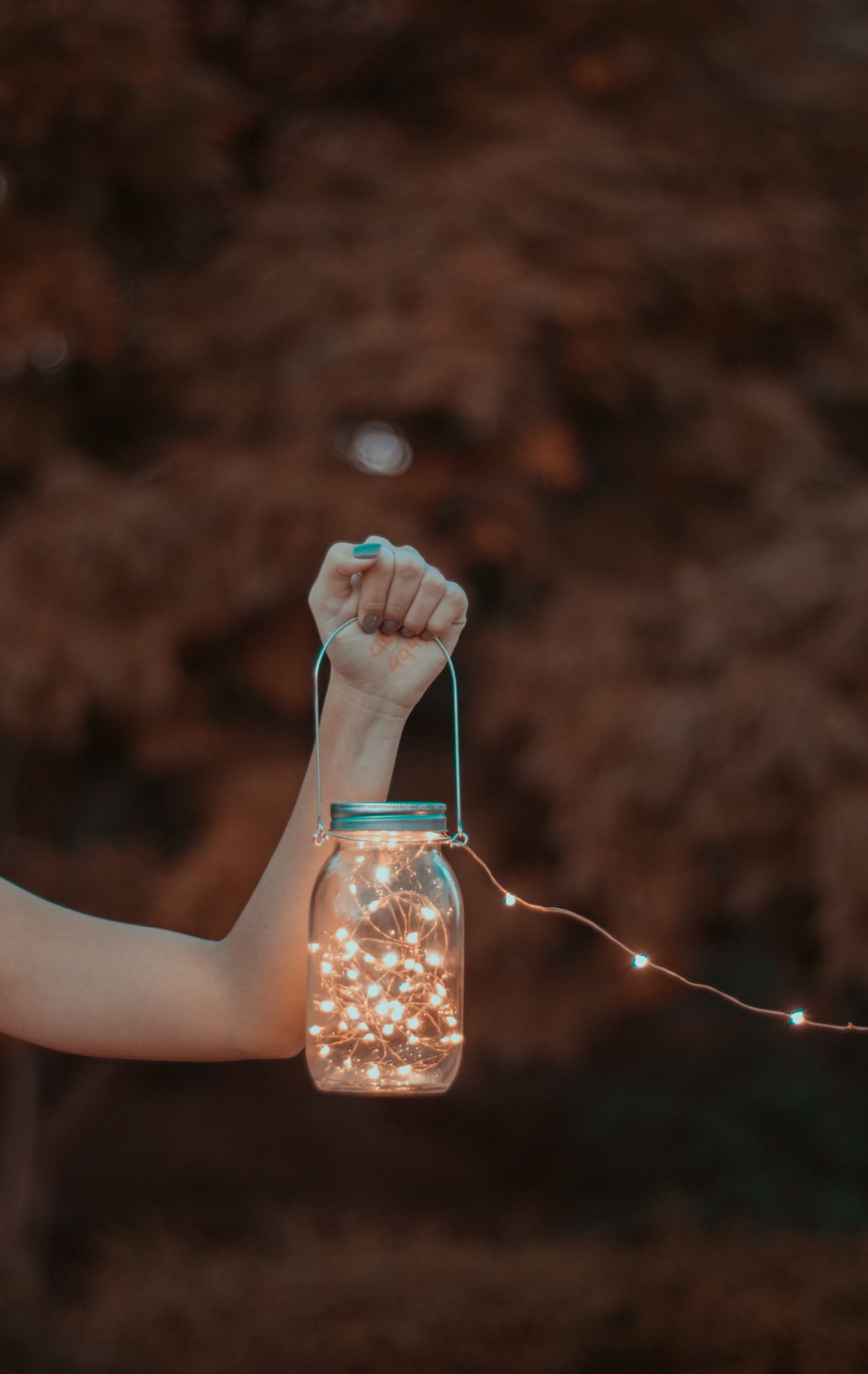

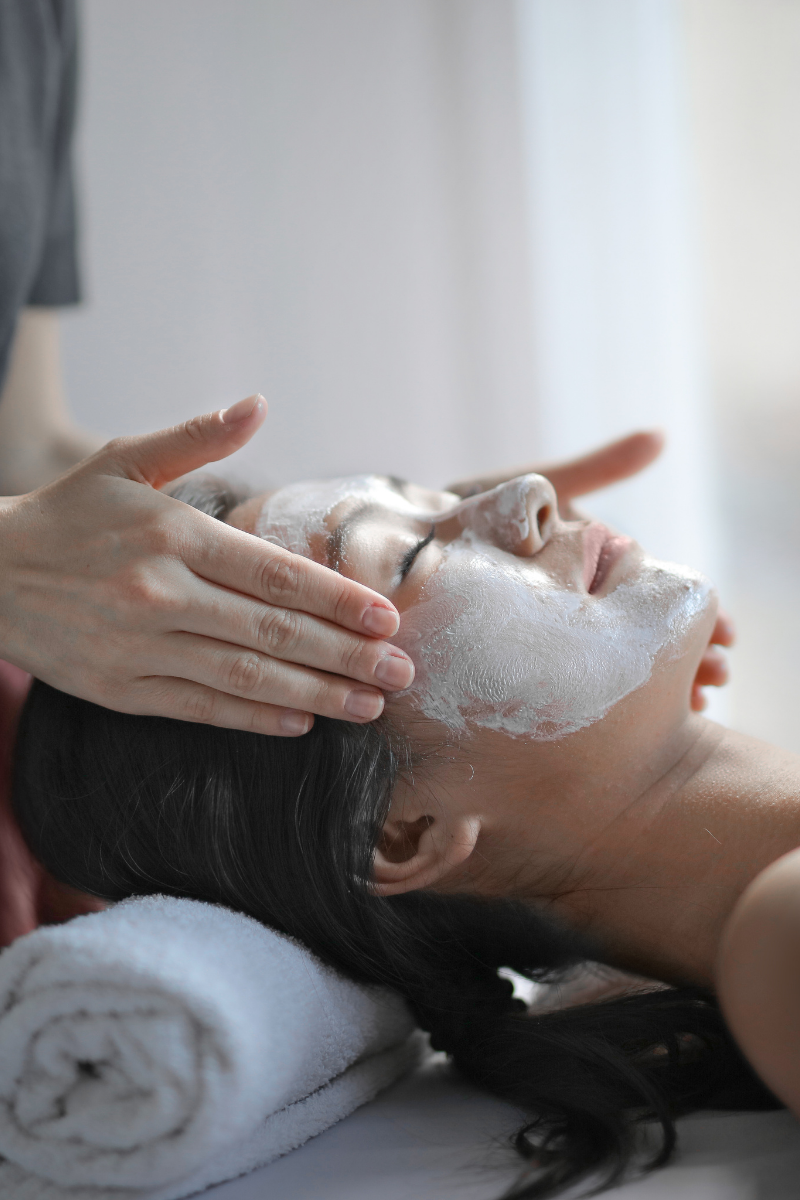
[…] Furthermore, excessive sweating can cause the skin to lift prematurely and can result in scars. I’m all for healthy habits, but a few days away from the gym won’t kill […]